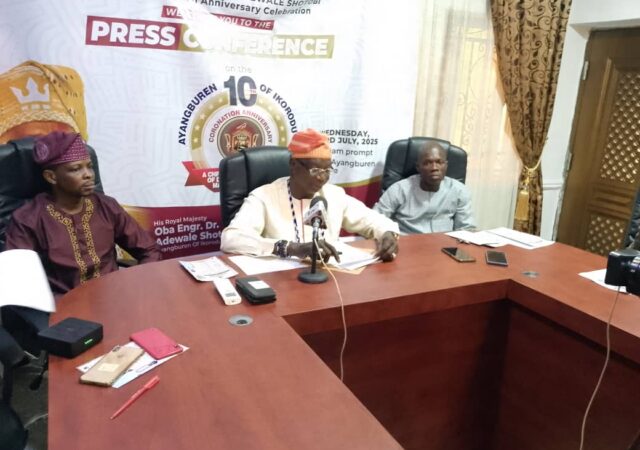…Affirms the Need for a Free Market Economy to Ensure Customer focused Pricing and Industry Stability.
In a press engagement held earlier today, March 26, 2025, the Major Energies Marketers Association of Nigeria (MEMAN) outlined its stance on the evolving Nigerian oil and gas sector, emphasizing the need for a free market economy to drive growth, innovation, and lower gasoline prices.
The session, themed “Refinery Basics, Gasoline Pricing & Trade Flows in Nigeria,” brought together experts to discuss key industry issues, including refining processes and global gasoline pricing mechanisms.
Notable speakers included Engr. Mark Williams, a petroleum refining expert, and James Gooder, VP of Crude Oil at Argus Media, who provided valuable insights into the factors influencing gasoline pricing and the benefits of global trade flows.
Clement Isong, CEO of MEMAN, underscored the need for Nigeria to transition to a competitive, deregulated market. He stressed that while the Petroleum Industry Act (PIA) is being successfully implemented, it is essential for the country to embrace complete deregulation to enhance efficiency, investment, and transparency.
Isong acknowledged that there would likely be opposition to such changes but he maintained that a free market approach would create a level playing field that would benefit both businesses and consumers.
James Gooder, VP of Crude Oil at Argus Media, supported this view by discussing the emerging competition in the Nigerian market, especially with Dangote’s refinery coming online.
He explained that local production is driving down the price differential between Nigerian and European gasoline prices, a shift that would not have been possible under the previous state-controlled pricing system. Gooder observed that this competition is forcing local producers to improve efficiency and, as a result, gasoline prices have begun to reflect global market trends.
He explained, “What you can see is that the price of the pump now reflects the market price. It’s not a fixed price like it used to be.”
Gooder’s analysis highlighted that deregulation has positioned Nigeria as an exporter of gasoline for the first time in years, with exports heading to markets as distant as Russia, Brazil and even the United States. This development is a clear sign that the deregulated market is beginning to function effectively, with Nigeria both producing and exporting oil products.
This was bolstered by Engr Mark Williams, who stated that the existing mini refineries in Nigeria, more often called ‘Modular Refineries’, are basically focused on exportation of their products and not on domestic consumption.
Notably, the evolution of a free market economy has opened the doors to more inclusion in the domestic downstream sector with Dangote Refinery able to source crude from wherever it wants for refining, and private oil marketing firms getting the go ahead to import finished petroleum products into Nigeria.
An interesting point made by Gooder was the assertion that Dangote Refinery’s entry into the market has created a disruption in global oil supply dynamics; however, it might not readily translate into drastic reduced gasoline prices immediately, as the refinery was still subject to market forces.
A significant issue MEMAN addressed was the inefficiency of past price control mechanisms, which, while intended to protect consumers, had detrimental effects on the economy and the environment. Price subsidies for gasoline led to excessive fuel consumption, contributing to environmental harm and encouraging smuggling. By eliminating price controls, MEMAN believes Nigeria can better align fuel prices with market realities, incentivizing more sustainable consumption habits and reducing waste.
Gooder pointed out that the removal of price controls has already started to curb demand. This reduction in demand is expected to have positive environmental effects as consumers are now more conscious of their fuel consumption.
Moreover, this would open the door for more sustainable energy practices, as the competition spurred by market forces will encourage investment in cleaner technologies and energy-efficient solutions.
MEMAN further stated that despite it’s call for full market economy, it is also imperative that the sector have strong regulatory oversight, by bodies like the Nigerian Midstream and Downstream Petroleum Regulatory Authority (NMDPRA) and the Federal Competition and Consumer Protection Commission (FCCPC), designed to ensure that the benefits of the market economy are realized without price collusion or gouging.
Another key aspect of MEMAN’s call for market reforms is the sustainability angle. The development of regional refining capacity, particularly with Dangote’s refinery, is contributing to a more localized supply chain, which not only reduces the carbon footprint associated with long-distance fuel imports but also makes the Nigerian market more resilient.
According to Gooder, this shift towards local production is helping reduce Nigeria’s reliance on imports and mitigating the environmental impact of global supply chains. He noted, “What we have here is the beginnings of a market…we have a large regional refinery…helping to meet local demand.”
The growing efficiency in local production is also contributing to a more sustainable and competitive market. As the Gulf of Guinea becomes a hub for regional fuel trade, Nigeria is positioning itself as a significant player in the energy sector. This regional market is not only helping meet local demand but also encouraging trade between neighboring countries, which further strengthens Nigeria’s economic and environmental standing.
MEMAN’s call for a deregulated oil and gas market in Nigeria is a strong push for innovation, competition, and sustainability. By transitioning to a free-market system, Nigeria stands to benefit from reduced gasoline prices, enhanced efficiency, and a more sustainable energy landscape. While the shift will undoubtedly face resistance from entrenched interests, the potential benefits of a competitive, transparent market are clear.
As the country embraces a market-driven approach, it is not only improving its economic prospects but also making strides towards greater environmental sustainability, ultimately positioning Nigeria as a key player in the global energy market.








I loved as much as you will receive carried out right here. The sketch is attractive, your authored material stylish. nonetheless, you command get bought an edginess over that you wish be delivering the following. unwell unquestionably come further formerly again since exactly the same nearly a lot often inside case you shield this hike.